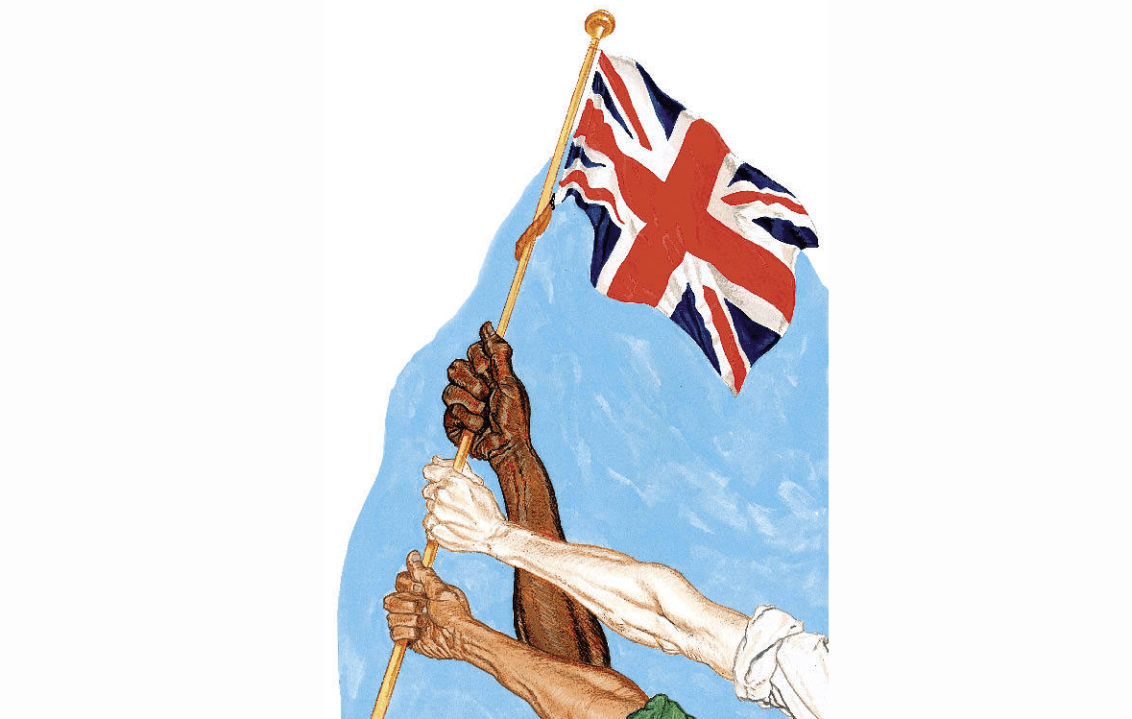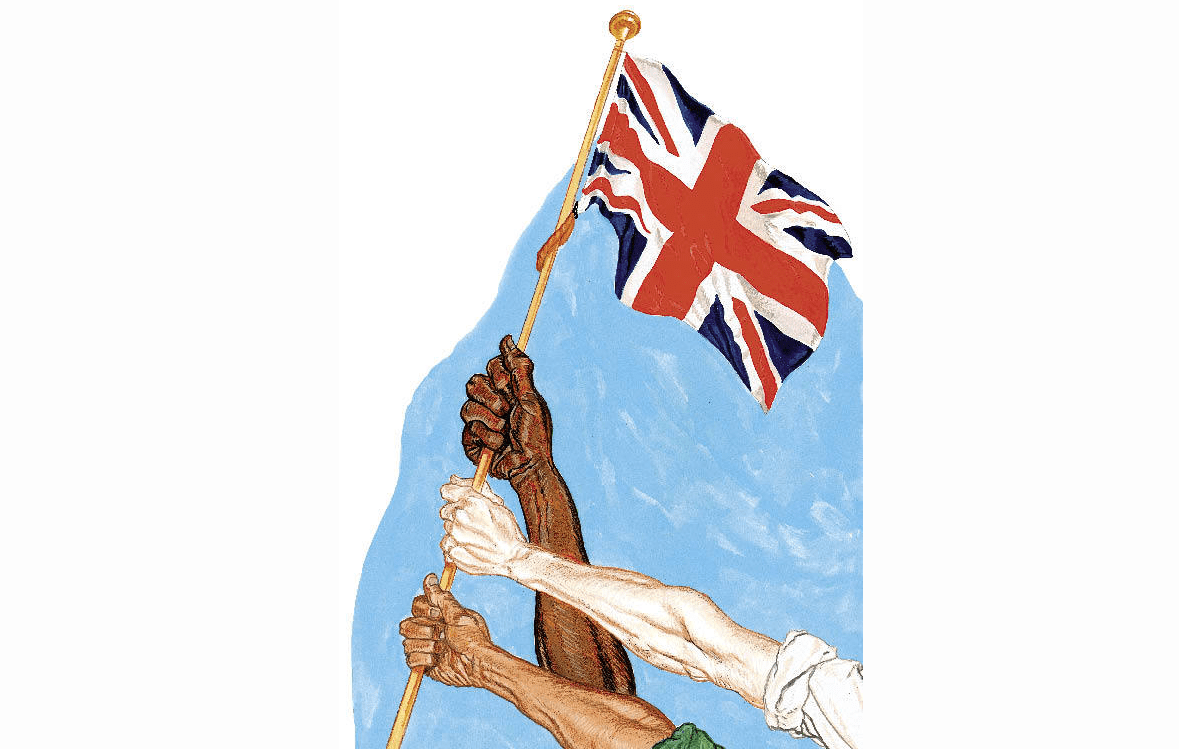It’s a dinner party in Brussels and I try to turn the conversation to the war in Ukraine. My host is having none of it. She is determined to initiate another round of discussion on the theme of ‘isn’t Britain a basket case?’ From bitter experience I know that I am in for a lengthy diatribe about ‘nothing works’ Britain.
At times it feels as if there is a veritable crusade targeting Britain. Media outlets on both sides of the Atlantic constantly refer to Britain as if it is a country in the throes of an existential breakdown.
All these critics hold that it is wrong, even shameful for the British people to take pride in their culture and their past
‘Britain is undergoing a full-blown identity crisis’, announced a New York Times reporter, before adding, that. We are a ‘hollowed-out country,’ ‘ill at ease with itself,’ ‘deeply provincial,’ and engaged in a ‘controlled suicide’.
Another commentator in the New York Times, Richard Seymour ostentatiously revels in Britain’s supposed misery. He contends that Brexit has cut Britain ‘down to size’ and, for good measure, that the nation is ‘economically stagnant, socially fragmented and politically adrift’.
The Wall Street Journal concurs and cannot resist the temptation of using the ‘Britain as basket case’ metaphor. One of its reporters wonders why the markets haven’t lost faith in Britain even though its economy ‘looks like a basket case’.
Increasingly, the international media portray Britain as a failed state, a nation of incorrigible xenophobes, who cannot let go of their racist and imperialist history. The supposed nostalgia of people for the imperial past is frequently associated with the behaviour of simple-minded Brexiteers, who are seen as searching desperately for their lost British identity.
There is more than a hint of triumphalism in these declarations. ‘There’s no cohesive British identity anymore, if there ever was,’ gloats one columnist in the Irish Times.
Numerous British commentators are more than willing to collaborate with Britain’s international detractors. On Fox News you can hear Piers Morgan confidentially informing American viewers that ‘Britain is a basket case’.
The British historian David Edgerton is reported in the New York Times as claiming that the very idea of the British nation is a ‘fantasy’ – apparently it never existed except for a few decades after world war two. Neal Ascherson’s ‘Bye Bye Britain’ in the London Review of Books concurs and no doubt some of his readers imagine that this nation will be soon be cast out into a state of political purgatory.
Sections of the left are openly contemptuous of Britishness. When Alastair Campbell tweeted ‘What an utterly ridiculous country we are’ he expressed a sentiment that is widely held by his metropolitan colleagues, including a fervent opponent of Britishness, the Guardian columnist Afua Hirsch, who has written an entire book devoted to delegitimating Britain’s identity.
All these critics hold that it is wrong, even shameful for the British people to take pride in their culture and their past.
Such sentiments have flourished in higher education, schools and in cultural institutions like the BBC since the 1970s.
Mocking the Union Jack has become de rigueur for the snobbish professionals who have colonised Britain’s cultural institutions. Last year, famously, two BBC breakfast presenters, Charlie Stayt and Naga Munchetty, took it upon themselves to make fun of the then Local Government Secretary Robert Jenrick for displaying the flag in his office.
In the middle of the interview, Stayt sarcastically stated,
‘I think your flag is not up to standard size, government interview measurements. I think it’s just a little bit small, but that’s your department really.’
In the background Munchetty could be seen laughing into her hand. Evidently, she thought that a government minister standing in front of the British flag was such a ridiculous sight that it was reasonable to sneer at his gauche behaviour.
The two presenters were forced to apologise. But no one was left in doubt that a significant section of Britain’s cultural establishment regard the display of the Union Jack with amused contempt.
Unfortunately, a negative and even hostile representation of Britain, Britishness and this country’s past is widely promoted by our own media, institutions of education and popular culture. Such sentiments continually call into question the legitimacy of Britain itself. British history is depicted as a source of embarrassment and of shame. In the past, school children were taught about the ‘good old days’. Today they learn about the ‘bad old days’ of their society.
It is a trend that has consequences; encouraging young people to become estranged from their community and from its cultural legacy.
The cultural crusade against Britishness is rarely challenged. Occasionally, the sense of frustration at the derision directed against a particular British custom, leads to a backlash. The outcry provoked by the BBC’s announcement that ‘Rule Britannia’ will not be sung at the Proms, a few years ago, is a rare example and, being reactive and defensive, the backlash is rarely able to match the force to which it reacts.
The campaign to undermine the moral status of Britain has been so remarkably successful because the field of battle on which this conflict is fought has been abandoned by its traditional elites. A significant section of the British establishment feels detached from its own culture and past.
The principal cultural institutions that create and communicate ideas – the universities, the media, the church – have lost the capacity to generate loyalty and pride towards the society that they are meant to serve. In many instances they feel alienated from the historical legacy of Britain to the point that they unwittingly – sometimes wittingly – communicate the proposition that the attempt to defend Britain is indefensible.
Many moderate and conservative public figures echo the basket-case talk. ‘No going home for Christmas, again. Welcome to basket-case Britain’ was the message of Ayesha Hazarika in the Evening Standard last month. Writing in the same vein, Allister Heath in the Daily Telegraph recently warned that ‘we are gradually going the way of Argentina, once one of richest nations, and until the 1960s more prosperous than many European powers, but now an impoverished, unstable basket-case’. Earlier Heath had tweeted that ‘Basket-case Britain is the definitive proof lockdown was an epic mistake’. The usually sober Douglas Murray has also suggested: ‘Even Biden’s America is booming compared with basket-case Britain.’
There is a danger that making a drama out of a crisis will contribute to the consolidation of pessimism
There is little doubt that Britain has more than its share of problems. A confluence of events – pandemic, energy and cost-of living crisis, economic stagnation, the apparent ineffectiveness of institutions of the state, particularly of the NHS – has understandably helped to create a mood of pessimism. Matters have not been helped by the manifest disorientation and disorganisation of the political establishment nor by the unravelling of the Conservative party.
Britain is far from being a basket case, however. There is a manifest tendency to overstate the dimension of the problem confronting British society. The current spate of public sector strikes have been rebranded as the current version of the 1970s Winter of Discontent. ‘Britain’s new winter of discontent’ declares the Financial Times. In the same vein, the Guardian warns that ‘Sunak and Hunt face a rerun of the 70s winter of discontent. It didn’t end well then’.
But the three-day-week and the strikes in the 1970s raised the fundamental question of ‘who rules?’ Public sector industrial action today is confined to the issue of whether or not the government is prepared to afford a pay rise.
There is now no serious competition between opposing factions about who gets to rule Britain. On the contrary, the problem at stake is that people in charge are reluctant to rule. The Conservative government, once a party that acted as if it was born to rule, seems reluctant to take the kind of actions that would allow it to take control of the situation. Labour, the party of opposition, behaves as if it is embarrassed by its massive lead in the polls and would prefer things were sorted out by someone else.
This absence of authoritative leadership has created the condition where the alarmist rhetoric of basket case Britain can take hold. The demoralised rhetoric serves as a typical Freudian displacement activity that distracts attention from taking responsibility for sorting out Britain’s predicament.
Unfortunately, there is a danger that the project of making a drama out of a crisis will contribute to the consolidation of pessimism and loss of confidence throughout society.
We have been here before. The widespread use of the term ‘Sick Man of Europe’ during much of the post 1945 era singled out Britain as a unique example of national failure. During the 1970s and 1980s the expression ‘British Disease’ served as a derogatory term of condemnation. But if there is a British Disease, it is this tendency towards self-loathing.
If our leadership is so willing to give up on Britain is it any surprise that foreign critics feel empowered to join in and write new obituaries of British identity?
The good news is that the Sick Man of Europe not only managed to survive but at times surprise the world with its robust health. Our naysayers will be proved wrong once again. Our current predicament pales into insignificance compared to the challenges faced by British people during the 20th century. Alarmist confusions about the state of the nation play into the hands of the fear mongers. What we need is the politics of hope and not the politics of fear.







Comments